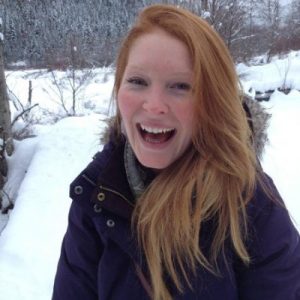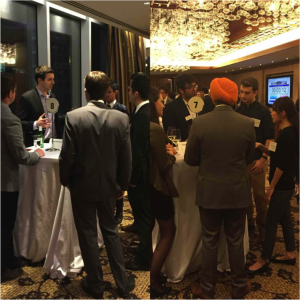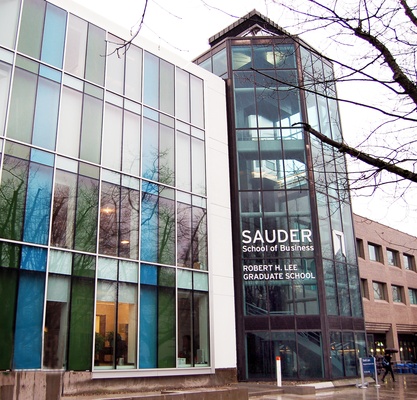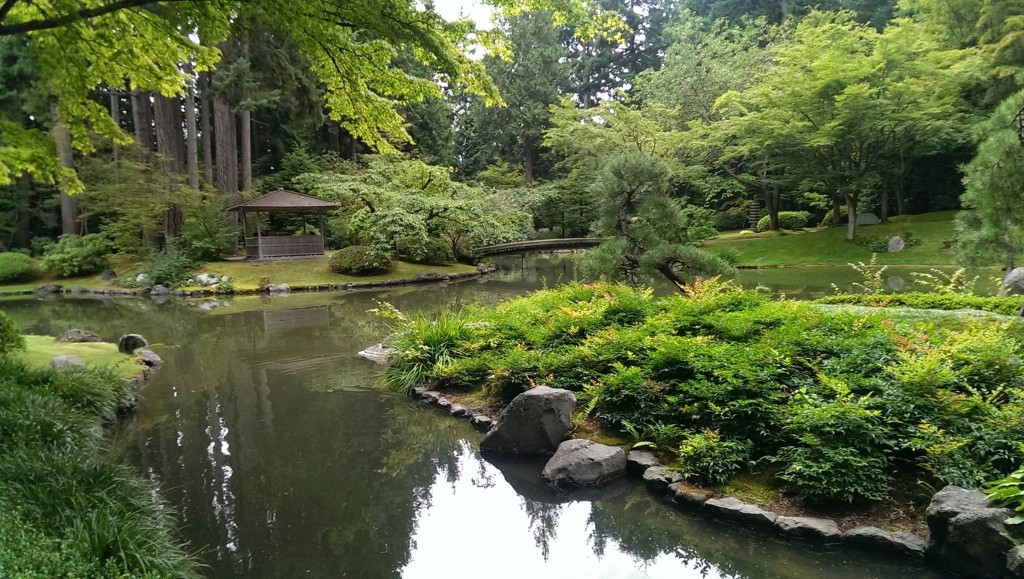First, thank you for inviting me to write a guest post on the official UBC Sauder MM Blog. It feels just like yesterday when you could find me sucking down double doubles from the Tim’s at Henry Angus at 7:30 AM each morning with incredible zeal, steeling myself for the day’s barrage of intense MM classes and dreaded group meetings – you know what I’m talking about.
In honesty, I look back on my days at Sauder with much fondness and believe that the MM program was a cornerstone decision that’s had a tremendous impact on my life.
I want to take this opportunity to offer a few words of advice and encouragement to those currently going through the program.
- Embrace your diversity in background, don’t shy from it.
I think many start the the MM program with a bit of self-doubt. I know in my year, we were only the third cohort coming out the program, so there was really a lot to think and be skeptical about. Wedged somewhere in between the rigorous academic foundation of a BCom and the work experience of an MBA, would I really be ready?
About half a decade out now, it’s very clear how little I had to fear. I still remember many of the stimulating conversations and incredible personalities from the MM program. I really enjoyed the dynamic natures of the people I went to class with, coming from various nationalities and academic backgrounds, who offered up perspectives on our courses and business cases with a perspective different from mine filtered from Science, Liberal Arts, Engineering backgrounds and more. Rarely in business is there only one way to tackle a problem, so learning to see so many different sides of an issue was a great lesson for me.
There have also been practical benefits to the MM experience. In the working world, now more than ever, creativity and new ideas are celebrated. At least in the technology and advertising world, many were fascinated by the story of my Music and Business background and often it’s kept the interviewer’s interest after they had slagged through 100 resumes with the same information, over and over. It shows we MMers have diverse interests, we’re willing to forge a unique path and if nothing else, that we’re interesting people (at least I’d like to think so). Breadth often breeds respect. I’ve noticed that stacking knowledge from different disciplines often enhances and rarely hinders your value to an organization.
- The UBC Sauder network is full of incredible connections. Use them.
One of the greatest things about being a graduate of UBC Sauder is that you’ll soon be joining the ranks of our amazing alumni community. A quick LinkedIn search will show you that we’re a global bunch, firmly established in almost every industry under the sun, whether in finance, tech, health, or entertainment – you’ll find us there..
Through the alumni network I’ve made many lifelong friends. I’ve found mentors to help me brainstorm through difficult business and career problems, I’ve secured job interviews while looking for new careers and I’ve found great friends and travel guides to meet up with when I’m visiting new countries, such as Tokyo, NYC and Seoul. Of course, I’ve also done my part to pay it forward when I can, helping make connections and introduction where possible. The reciprocity found in the Sauder community always surprises me and I’m grateful to be a contributing member.
- Life is a journey, don’t forget to enjoy the ride
The late nights, myriad exams and numerous networking and study sessions can seem incredibly arduous at times, but let me assure you that it will all be over in a blink of an eye. Very soon, you’ll be walking across a stage, shaking hands with the Chancellor in the Chan Centre and it will all feel like a dream.
So carpe diem. Will yourself to go to all the networking events, take part in the TREKs the school provides, make a few extra visits to the Career Centre, have a couple late nights out with your cohort and drink it all in (pun intended), leave no stone unturned because – to reiterate – it will all be over faster than you think. Say “yes” to more often than saying “no.” Make the most of your time in the MM program and leave no stone unturned. I assure you, it will be worth it.
All the best to this year’s MM cohort and a big shoutout to the amazing UBC Sauder alumni all around the world.

Feel free to connect with me whenever on LinkedIn at https://www.linkedin.com/in/leungalexander/ or read more about my travels, work and life at my blog leungalexander.com
Always willing to help a fellow MM-er in need.
Photo: Checking out the Angkor temples in Siem Reap, Cambodia
Written by Alexander Leung ’12
 Follow
Follow
 It has to do with the mismatch between modern and ancestral environments. The characteristics humans possess today are a result of adaptations to a multitude of social and physical challenges our ancestors faced, which may not be well-adapted for life in our modern society. Unfortunately for us, social fear is the result of this mismatch.
It has to do with the mismatch between modern and ancestral environments. The characteristics humans possess today are a result of adaptations to a multitude of social and physical challenges our ancestors faced, which may not be well-adapted for life in our modern society. Unfortunately for us, social fear is the result of this mismatch.


